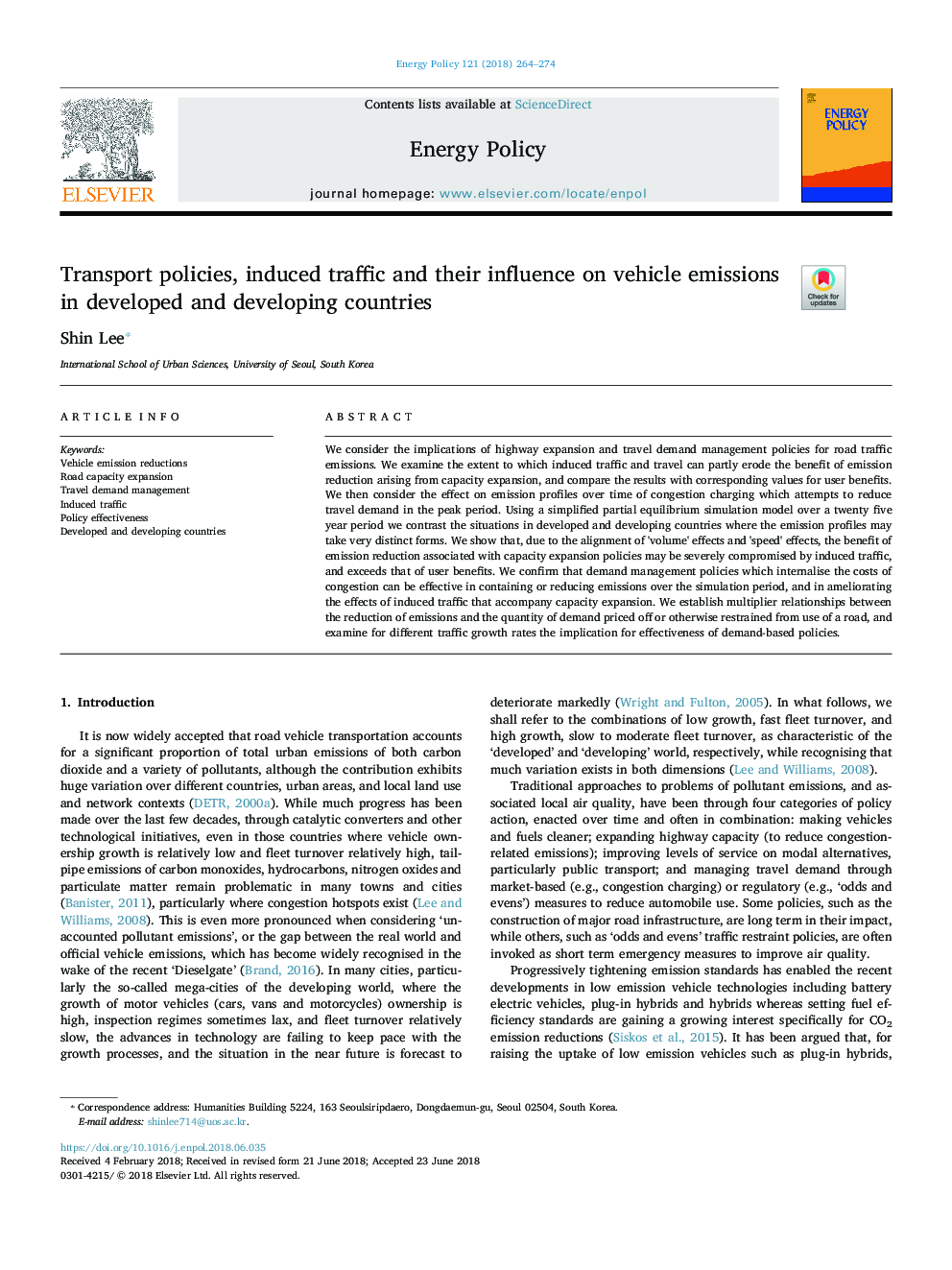| Article ID | Journal | Published Year | Pages | File Type |
|---|---|---|---|---|
| 7396864 | Energy Policy | 2018 | 11 Pages |
Abstract
We consider the implications of highway expansion and travel demand management policies for road traffic emissions. We examine the extent to which induced traffic and travel can partly erode the benefit of emission reduction arising from capacity expansion, and compare the results with corresponding values for user benefits. We then consider the effect on emission profiles over time of congestion charging which attempts to reduce travel demand in the peak period. Using a simplified partial equilibrium simulation model over a twenty five year period we contrast the situations in developed and developing countries where the emission profiles may take very distinct forms. We show that, due to the alignment of 'volume' effects and 'speed' effects, the benefit of emission reduction associated with capacity expansion policies may be severely compromised by induced traffic, and exceeds that of user benefits. We confirm that demand management policies which internalise the costs of congestion can be effective in containing or reducing emissions over the simulation period, and in ameliorating the effects of induced traffic that accompany capacity expansion. We establish multiplier relationships between the reduction of emissions and the quantity of demand priced off or otherwise restrained from use of a road, and examine for different traffic growth rates the implication for effectiveness of demand-based policies.
Keywords
Related Topics
Physical Sciences and Engineering
Energy
Energy Engineering and Power Technology
Authors
Shin Lee,
